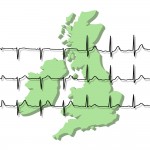
The NHS Operating Framework 2012/13 focuses on the new commissioning landscape. It lays out the planning, performance and financial requirements for NHS organisations in 2012/13 and the basis on which they will be held to account.
This brief overview simply picks out the headlines. Commissioners will want to get into the detail of this annual publication.
Introduction
David Nicholson reminds readers:
The scale of the changes we need to manage in the coming period mean that we need to focus more than ever on what the NHS is here to do
…the very purpose of the health service, in the words of the NHS Constitution, to support people “at times of basic human need, when care and compassion are what matter most”. We lose sight of this mission at our peril
PCT clusters
Emerging CCGs should expect support from PCT clusters on:
- Progress to full authorisation by the NHS Commissioning Board
- Exploration of commissioning support offers from a range of suppliers
- Allocation of running costs and staff commensurate with their budget responsibilities
- Working with GP practices to review practice patient lists, by March 2013
Strategic Health Authority clusters
SHAs to support the development of the new commissioning architecture, including being held to account for configuration and establishment of CCGs
Local Authority Health and Wellbeing Boards
CCG commissioning plans to be informed by the Joint Strategic Health Assessment and Joint Health and Wellbeing Strategies
CCG development and authorisation
Specific guidance on the process for authorisation to be issued. CCGs should seek to be coterminous with a single local Health and Wellbeing Board.
In preparation for becoming statutory bodies, CCGs need to:
• build a track record: budget setting and planning for 2012/13, relationships with local partners in particular Health and Wellbeing boards, support delivery of the QIPP agenda
• prepare for establishment: spanning configuration risks, moving towards authorisation, identifying future commissioning support requirements and plans to use the running cost allowance
• become a successful organisation: undertake a development plan agreed with the PCT cluster, agree governance plans with local stakeholders
Commissioning Support
Services must be commercially viable, customer focused and develop separately from the cluster. They may work outside their geographic area across aggregated CCG areas.
Empowering patients
Choice is critical to giving patients more power in our system
PCT clusters should drive forward improvements in patient choice so that there is a presumption of choice for most services from 2013/14.
Finance and business rules
Involvement of local clinicians in contracting will be essential and PCT clusters must ensure that contracts transition smoothly to the new responsible organisations
CCGs will not be responsible for resolving PCT legacy debt that arose prior to 2011/12. They are expected to work with PCT clusters to ensure that no PCT ends 2012/13 in deficit
The running cost allowance for CCGs from 2013/14 is expected to be £25 per head of population per annum (apart from any entitlement to a quality premium).
Planning and Accountability
Each cluster must have an integrated plan for 2012/13 focusing on priorities around QIPP, finance, activity, workforce, informatics and transition. They must ensure that emerging CCGs explicitly support the plan and have a base to build their own plans going forward around transition and reform.
“Any decision going forward that does not incorporate a genuine viewpoint from local clinical leaders of emerging CCGs will be open to challenge.”
Quality
The NHS Outcomes Framework 2012/13 will act as a catalyst for driving quality improvements and outcome measurement throughout the NHS giving clinicians real power to exercise their judgement on the best ways of improving outcomes for their patients.
Reference
NHS Operating Framework 2012/13 (PDF) , Department of Health, 24 Nov 2011.
